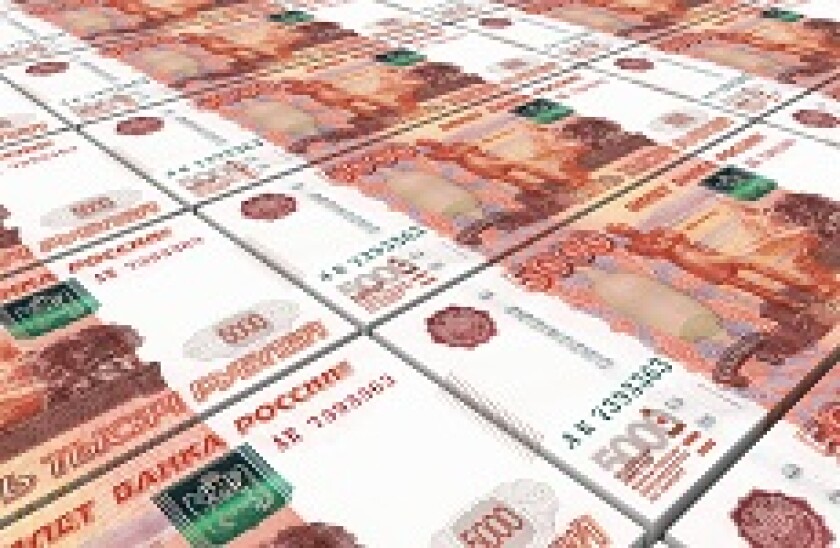Russia several times over the last few years has used the bond markets to show strength at a time when it feels under attack.
Just last year the sovereign printed in the Eurobond market with two such deals. The first was a $4bn bond, sold in March, a week after it was accused of the poisoning of spy Sergei Skripal in the UK. In November it sold a €1bn deal just days after it seized three Ukrainian navy ships off the Crimean Peninsula.
If Russia does print a bond in the next few months, perhaps ostensibly as pre-funding for 2020, it would be the most blatant demonstration yet that its finances are untouchable by western condemnation.
Most investors and bankers are interpreting the latest sanctions as only stopping US financial institutions from participating in the primary market. They say that as such, US investors could still buy new deals in secondary.
If that is the case, this is not such a roadbump for Russia. In dollars, a scenario could well emerge where there is furious competition among funds outside the US for bonds in the primary market because those funds know that there will be strong follow-on demand for this paper in the secondary market from US funds.
That will especially be the case for as long as Russia remains in the JP Morgan EMBI, the main benchmark index for emerging market funds. At worst, Russia may have to pay up a few extra basis points to get a new deal away, but maybe not even that.
The country also has the option of going out into the markets with a Eurorouble note, which under the sanctions, US funds can still buy directly. Or it may be tempted to issue in euros, as it has more often done recently, to remind the US that it doesn’t really need its money anyway.
Provided that there are no further revisions to terrify investors (or more sanctions over Russia’s involvement in Venezuela), it feels likely that buyers would pile in. Far from scaring investors with this round of sanctions, there almost seems to be a sense of relief that worse has not come to pass.
This weak, toothless set of sanctions does only what was absolutely necessary under the Chemical and Biological Weapons Control and Warfare Elimination Act of 1991, but no more.
The only thing that might hold Russia back from yet another display of capital markets strength is that it has little headroom to print more bonds. In the budget for this year, Russia earmarked total issuance of up to $7bn-equivalent. It said it would raise new money of up to $3bn and up to $4bn through liability management, buying back existing bonds from the market in the process.
The sovereign has already raised $6.5bn through a various tranches, according to one DCM official, so has already exceeded its target amount for new money and is under no pressure to do more. The overfunding was allowed because at the same time the sovereign reduced its domestic debt financing.
But a revision to its debt markets plan could happen again. Rates are low and the deal would no doubt raise a cheer somewhere in Moscow as well as a middle finger to the US. And there is the old DCM mantra to fall back on — what better time to raise money than when you don’t need it?
As the sanctions stand, the only thing holding Russia back from the debt capital markets not sanctions, it is its own desire for the cash.

